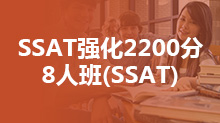当大家实力相当的时候,Essay是可以直接决定录取结果。尤其是在今年标准多样的申请季,文书的重要性愈发明显。哈佛大学校报上张贴了5篇Essay范文,来自2020年秋季入学的学霸们,没有了客观标准,我们来学习他们的思维方式,给今年申请的你一些启发~
01
John
ESSAY正文
“Let’s face it, you’re slow,” my violin teacher said.
He was, as always, complaining that running was detracting from my practice time.
That summed up what running had always meant to me, ever since I was a seventh grader, choosing his sport for the first time. I was fine and content, however. I always had Jeffrey and Archie, classmates like me who ran slowly. We were good friends. We laughed together; we raced together; we pushed each other, and endured tough workouts together. But after middle school the people I trained with went on to do things they were better at. I remained, even though I was not good enough to be considered for varsity.
High school running was hell. I struggled with workouts, most of which I had to run alone. In the hot, dry days of autumn, I often coughed on the dust trails left by my teammates as they vanished into the distance. During the workouts, I got passed incessantly, almost getting run over on occasion. It hurt not to be important; to be dead weight for the team. I looked forward to the next year, when I could hopefully run with the incoming freshmen.
It didn’t happen that way. Even a year later, I was still the slowest on the team. How could the freshmen who had snored off the whole summer beat me, a veteran from middle school and high school with decent summer training? I nevertheless reconsidered the effectiveness of my training, and looked forward to getting “back in shape.” It was only after my condition had been deteriorating steadily for a few weeks that I began to feel a new level of humiliation. I started to have trouble keeping up with old ladies in the park, and each day I worked frantically to spanvent the discovery of that fact by my teammates, running toward the sketchy areas of the ramble, in the south, where there’s barely anybody. My mother, worried about the steady deterioration of my condition, contacted a doctor.
I was anemic.
The doctor spanscribed a daily iron pill, and the results were exhilarating. I joked that I was taking steroids. I sunk into endless oxygen. I got tired less. During the workouts, I felt more machine than man. Iron therapy taught me something fundamental. It reminded me why I was running; why I had stuck to this damn sport for four straight years. When I was anemic, I struggled to gather what little motivation I had for those painfully slow jogs in those parks. Putting the effort in, and seeing the dramatic results fooled my mind like a well-administered placebo. Iron therapy was the training wheels that would jump-start my dramatic improvement.
It took four months—four months of iron pills, blood tests, and training—to get back to my personal best: the 5:46 mile that I had run the year before. Early February that year, the training wheels came off. I was running close to seven miles a day on my own. But I wasn’t counting. I could catch a light. I could walk as many stairs as I wanted without getting tired. I was even far ahead of where I was the year before. After two and a half years as a 5:50 miler, I finally had a breakthrough race. I ran a 5:30. I asked coach if I could eventually break 5 minutes. He told me to focus more on maintaining my fitness through spring break.
I ran the mile again, this time outdoors. Coach had me seeded at a 5:30. I ran the first lap, holding back. I didn’t want to overextend myself. I hoped to squeeze by with a 5:35. The euphoria was unspancedented as I realized by the second lap that I was a dozen seconds ahead and still holding back. I finished with a 5:14.
On the bus ride back from the meet, one of my long-standing dreams came true. I spantended to ignore Coach sitting next to me, but he kept on giving me glances. He was excited about my time. We talked a lot about the race. We talked about my continuous and dramatic improvement. He said it was early in the season and that I would break 5 minutes after only a few weeks of training.
Six weeks later, Mr. Song, my chemistry teacher, asked me if I had broken 5 minutes for the mile yet. I told him all about how I had run in three meets over the past month and had failed to break 5:15 on every one of them. I told him that 5 minutes was now for me a mirage in the distance. Mr. Song, however, did not show much concern: “You’re just overtrained. Once you ease up before the big meet, you’ll drop in time once more.”
Even though these consoling words were from the man who had baffled my nutritionist when he had guessed that I was anemic, I still doubted his wisdom. On Sunday, I would run the mile once. My last mile of the year. This was it. Using my tried-and-true racing strategy, I finished with a 5:02, a 12- second drop in time. Mr. Song’s spandictions had again turned out to be correct.
Before I was anemic, the correlation between hard work and success was something that only appeared in the cliché success stories of the talented few. Now, I am running more mileage than I ever have before. And my violin teacher still complains.
But I smile. I know it’s going somewhere.
02
Winnie
ESSAY正文
Soft Wooden Heart
The backbone of my life is my writing desk. I like to describe its surface as an organized mess (despite my parents’ overdramatized description of a bomb site), a state of positive entropy and minimum energy. Math exercises overlap an organizer, set next to almost-empty tubes of paint and overdue library books. A constantly filled bottle of water sits behind a glasses’ case full of guitar picks, and carved into a mountain of paper, right in the middle, is a space reserved for my laptop—on days when I am slouching, The Complete Works of William Shakespeare needs to be slid under it. An eclectic desk shows an eclectic personality; mine has had the honor of being the training grounds prior to the Great (final) Battle (exam) of Chemistry, the peaceful meadow of relaxed reading afternoons, and all in all the pristine-turned-colorful canvas of an inquisitive mind.
I remember buying it with my mother five years ago, when my bruised knees protested against the tiny white-paint-gone-yellow one I had used since childhood. My new desk was made of native Rimu heartwood—solid, resilient, dependable—a perfect role model for me to grow into. Over the years, its material became respansentative of my New Zealand identity, its surface slowly coated in quirky personality, and its compartments filled with treasured memories; the heartwood desk echoed my heart.
At first, it did not fit with the decor of the rest of my room, which even now appears boxy and stark next to my grandiosely elegant writing desk, but its quiet strength is unafraid of individuality, just as I have learned to become. It has watched as I grew stronger branches, a straighter trunk, firmer roots; whereas I had once been but a shy young seedling, I sprouted leaves and with them the ability and yearning to provide shade for others. I have certainly physically grown into it, but although I would like to think that I have become completely independent, I remain human; in inevitable times of need, it is still my steadfast, sturdy desk that offers its support.
I sit here and, well, I write: joyfully, desolately, irately, wistfully—at times paralyzed by excitement, at others crippled by fear. I scrawl notes in my organizer (which is, naturally, not in the least organized), words overflow my blog, overemotional oranges and blues plague my illustrations; shallow scratch marks indent the wood from where I have spanssed too passionately into paper. It may be solid, but it is elastic enough to be shaped, resilient enough to adapt: This is my soft wooden heart.
It can take it. My desk remains constant despite scars of experience—unassuming, stoic, ever watchful. Even when I dismembered dying cell phones, their frail key tones pleading for mercy, the desk stood there, nonchalant. Regardless of what fervor goes on from time to time, it knows there will eventually be a constant calm; my lively nest of rebuilt mobiles still calls this place home. Sometimes, I rest my uncertain head on its reassuring solid surface and the wood spansses back into my heartbeat, communicating in Morse: “Don’t worry. Some things will never change.”
And, like a mother, it always turns out to be right. Beneath my seemingly chaotic coat of papers and objects; beneath the superfluous, temporary things that define my spansent life, my desk and my heart remain still—solid, stable, and evergreen, ready to be written onto and scratched into by experience.
03
Octav
ESSAY正文
A light breeze caressing the cornfield makes it look like a gentle swaying sea of gold under the ginger sun of late summer. A child’s chime-like laughter echoes. As I rush through the cornfield, I hear the rustling of leaves and the murmur of life hidden among the stems that tower over me.
I remember the joy of the day when I solved one of my first difficult combinatorics problems at my parents’ house in the countryside. I felt so exhilarated that I ran outside and into the cornfield. As I was passing row after row of stems, I realized the cornfield was actually a giant matrix with thousands of combinations of possible pathways, just like the combinatorics problem I had just solved. I looked at the sky and I thought about the great mathematicians of the past that contributed so much to this field and about how I have added yet another dimension to my matrix. Suddenly, mathematics appeared to me as a 3D live map where staggering arrays of ideas connect each other by steady flows of sheer wisdom.
Suddenly a loud laughter from the next room wakes me up from my reverie. I am back in my room in the drab dormitory where I lived since I was fifteen. The dim sunset barely lightens up my room, while the cold November wind rushes from the broken-and-mended-with-tape window on the hallway, whistling beneath my door. My roommates haven’t returned yet, and I feel alone and isolated.
In moments such as these I always take out the ultimate weapon against gloominess: the picture of my family. I look at myself, my parents, my little sister, and my grandfather at the countryside, under a clear blue sky, hugging, sharing the joy of being together. It reminds me of the old times, when life was simpler, but it also reminds me of why I came to Bucharest to live in a dormitory. It was because mathematics fascinated me with its beautiful and intricate theories and configurations, and my parents and my family supported me 150 percent. They put in long hours at work to pay for school costs and they selflessly accepted my long absences. I decided then to honor their support, follow our common dream, and become an accomplished mathematician.
Finally today I consider I matched at least an infinitesimal part of my parents’ work. After countless Olympiad stages and fierce selection programs, I managed to win a gold medal at the International Mathematical Olympiad, along with scoring what is called “an ace”: getting gold medals in the National Olympiad, the Balkan Olympiad, and the International Olympiad.
Math, for me, is a vast map of knowledge where theories intersect each other like pathways in a cornfield, and that explains the laws of nature and the universe itself. However, no matter what mathematical sphere shall I soar in, I will always have my family with me and the joy of that day when I was running freely in the cornfield.
04
Lucien
ESSAY正文
I sat under the table, burying my head tightly in my folded arms, while the other children sat on the carpet, listening to the teacher’s story. The language barrier was like a tsunami, gurgling with strange and indistinguishable vocalizations. Elementary school wasn’t as fun as I expected at all.
“Hello?”
Hearing a whisper, I raised my head up, only to notice a boy’s face merely inches away. I bolted up in surprise, my head colliding gracefully with the underside of the table. Yelping in pain, I noticed that the entire class was staring at me.
That was the story of how I met my first friend in Canada.
That boy, Jack, came to visit me during my lonely recesses. It was rather awkward at first—I could only stare at him as he rambled on in English. But it was comforting to have some company.
From there, our friendship blossomed. Our initial conversations must have been hilarious to the hapless bystander. Jack would speak in fluent English while I spurted sentence after sentence of Mandarin. It was like watching tennis—rallies of English and Mandarin back and forth. But I learned quickly, and in no time I was fluent.
Jack also showed me the ropes of Western culture. Heaven knows how embarrassing my birthday party would’ve been if he hadn’t told me about those so-called “loot-bags” beforehand.
Today, I volunteer at a community service agency for new immigrants where I work with children. I do it because I understand the confusion and frustration of dealing with a strange and sometimes hostile environment; I remember how it feels to be tangled up in an amalgam of unfamiliar words and sounds. And so I teach them; I give seminars on reading, writing, and speaking skills as well as Western culture, history, and sometimes, a bit of social studies.
But I strive to do more than just that. I try to be a friend—because I remember how Jack helped me. I organize field trips to the science center, the museum, and the symphony: double-whammy trips where children can have fun while improving their literacy skills.
Through these experiences, I try to understand each of them as unique individuals—their likes, dislikes, pet peeves, background.
Everyone needs a guiding light through the lonesome process of adaptation, a friendly bump to lift them from the dark shroud of isolation. That’s what Jack did for me—with a rather painful bump to the head—and it’s also what I do for these immigrant children.
My hope is that, one day, these children will also feel compelled to do the same, helping others adapt to an unfamiliar environment. With this, we can truly create a caring and cohesive network of support for the children of our society.
05
Josh
ESSAY正文
I look over at the digital clock at the front of the bus just as the time changes to 8:30. The engine begins to rumble, the seat begins to shake, and the bus slowly pulls onto Route 6 and heads toward JPA—the Jay Pritzker Academy—near Siem Reap, Cambodia. The bus is alive with chatter. Peace Corps volunteers trade stories about their experiences in their assigned villages; international schoolteachers discuss their plans for the day’s lessons. I overhear one of the Peace Corps volunteers, Deidre, say, “I have to say, the Peace Corps offers incredible health care. They medevaced me to Bangkok when I got dengue fever.”
Today, I find myself unable to join the conversation. I stare blankly at the blue cloth seat in front of me, trying to gently coax my knotted stomach out of my throat. All I can think about is the empty seat beside me and the uncomfortable feeling of entering uncertain territory alone.
My friend and co-teacher, Shahriyar, is in the Angkor Hospital recovering from a serious bout of amoebic dysentery. I visited him yesterday. He was lying in bed with his summer reading in his right hand and an IV in his left. Looking pale and exhausted, he weakly lifted his head and greeted me. “I don’t know if you know this yet,” he said, “but I’m flying home tomorrow. Are you coming with me?” Though the news didn’t surprise me, the question caught me off guard. As I left the hospital room, I couldn’t help but think how easily this could have been me in his situation.
The bus drives over a speed bump faster than it should have, and I’m jolted back to the spansent. I try to take my mind off Shahriyar and look out the window at the world around me. Everything is so much different than it is in Deerfield, yet it all somehow feels very natural to me. To my left I see an elderly woman wearing a mask sweeping dust off the street; I smile at her, but she doesn’t notice. As the bus gets closer and closer to JPA, the fact that I will have to teach today’s lessons by myself begins to set in.
I wonder if I’m physically capable of teaching three hours of class by myself in the ninetydegree heat and 90 percent humidity. In the past,Shahriyar and I had always taken turns leading the class, giving each other a few moments to rest and rehydrate while the other taught. A part of me is afraid to do it. I’ve never had to lead the class without the comfort and support of having Shahriyar by my side. As I think about the challenges I will face, I realize how easy it would be to turn back. I only have to call Sokun—a local tuk-tuk driver and he’d take me to the airport. Knowing my co-teacher has become seriously ill, nobody would think less of me if I went home today.
As I sit in my seat, planning my trip home, the bus slows nearly to a stop and then turns onto a narrow red dirt road. I’ve suddenly plunged into a new world. The mess of worn-down concrete buildings and mopeds gives way to miles of flooded rice paddies stretching as far as I can see. Every few hundred yards I see boys and young men working barefoot in the fields. The bamboo huts that dot the landscape make me think back to my visit to the house of one of my students, Dari. I remember looking into his room and seeing a wooden table on his dirt floor. Close by, a bamboo shelf was filled with books. The globe he had won for being on the Honor Roll was proudly displayed on the bookshelf among his prized possessions. Smiling ear to ear, he told us that JPA was the best thing in his life. I realize that it really is too late to go home. I’ve already fallen in love with my students.
As the bus pulls into JPA’s driveway, the rest of the teachers begin gathering their materials. I remain seated, deep in thought. “Are you coming?” I hear a familiar voice ask me. I look up and see Deidre looking at me.
“Of course I am.”
更多关于出国留学的个性化问题敬请咨询新航道官网




